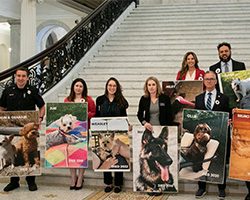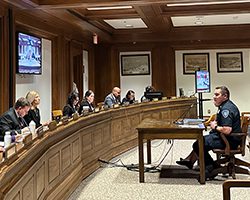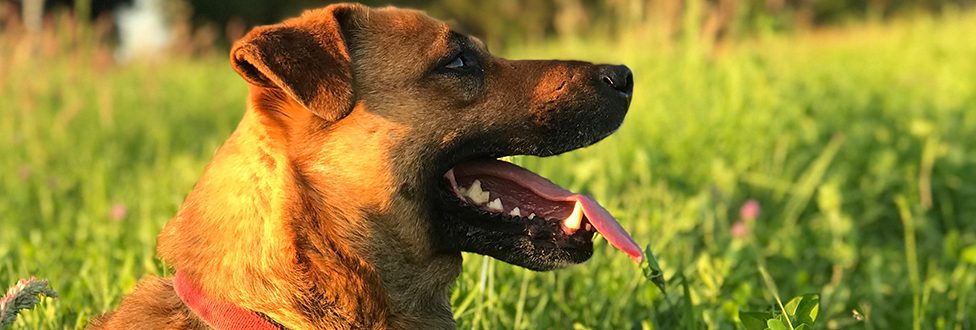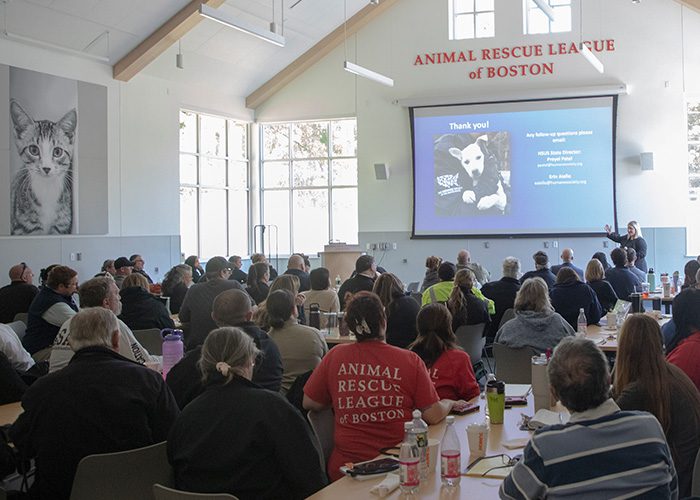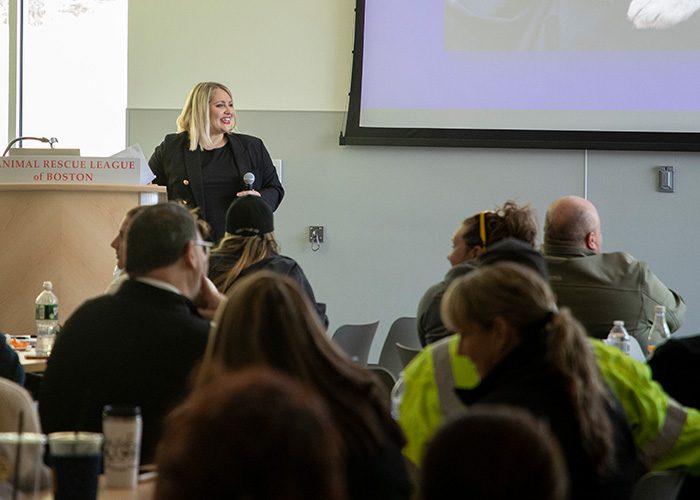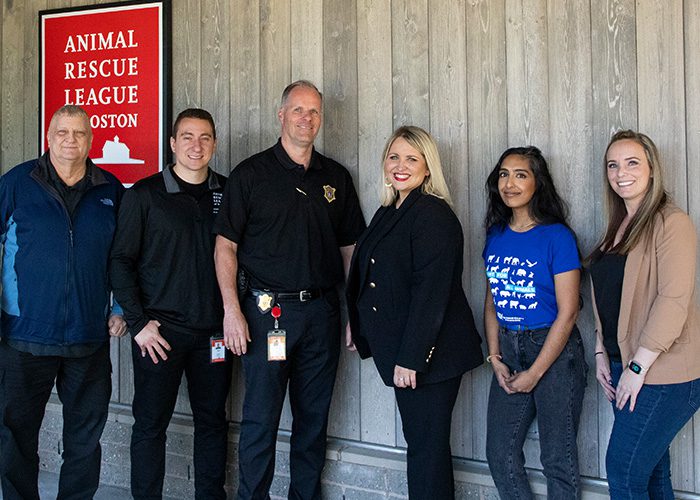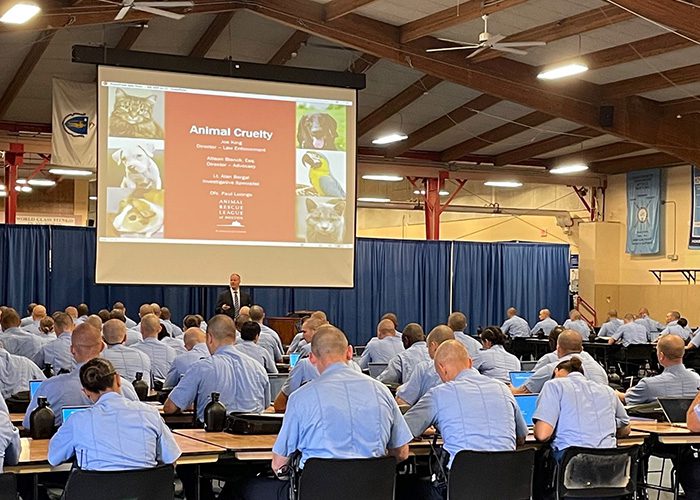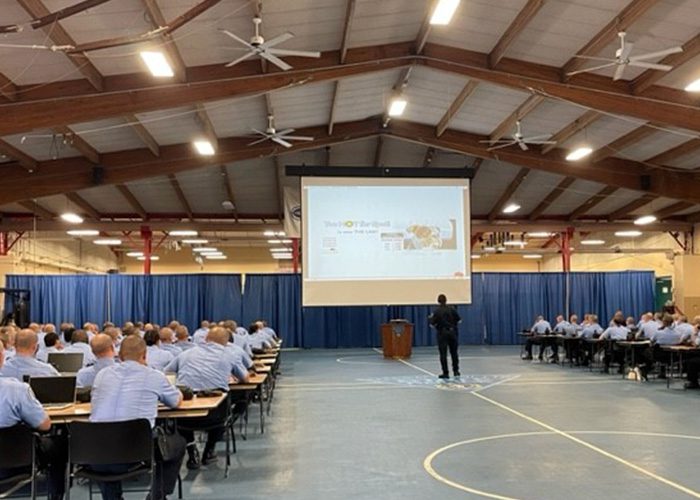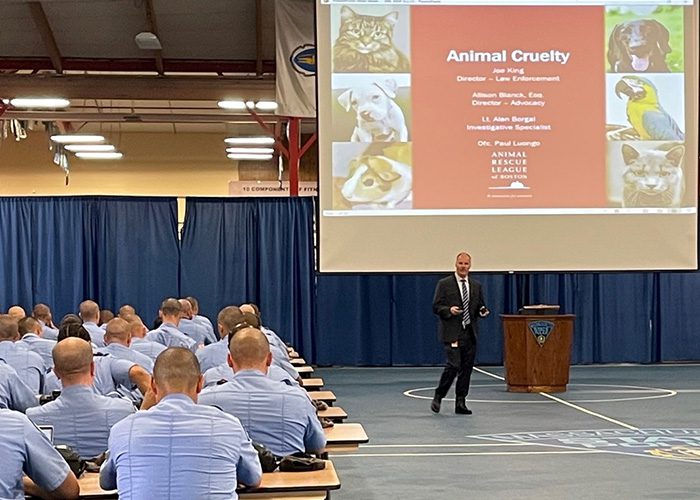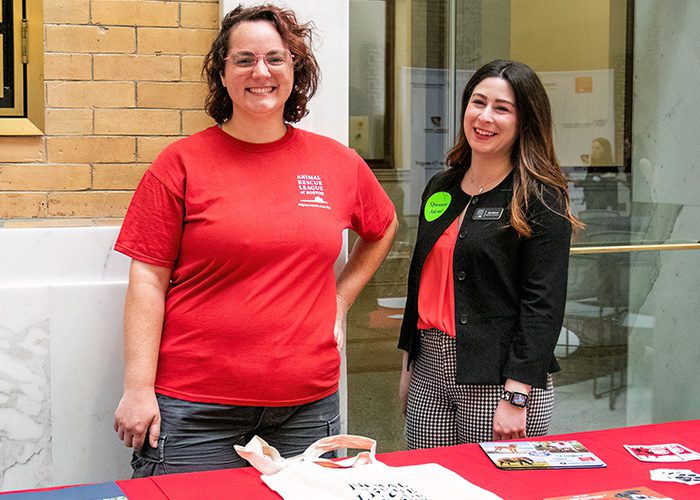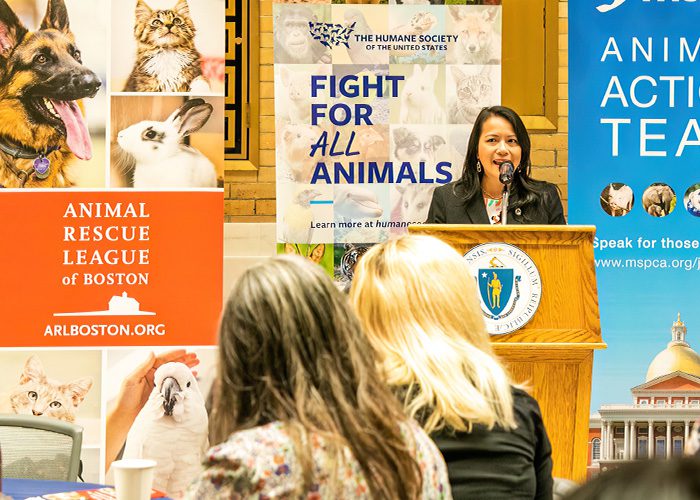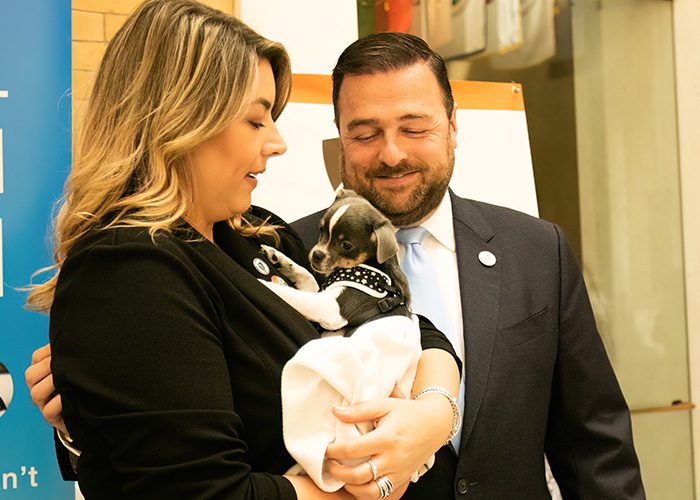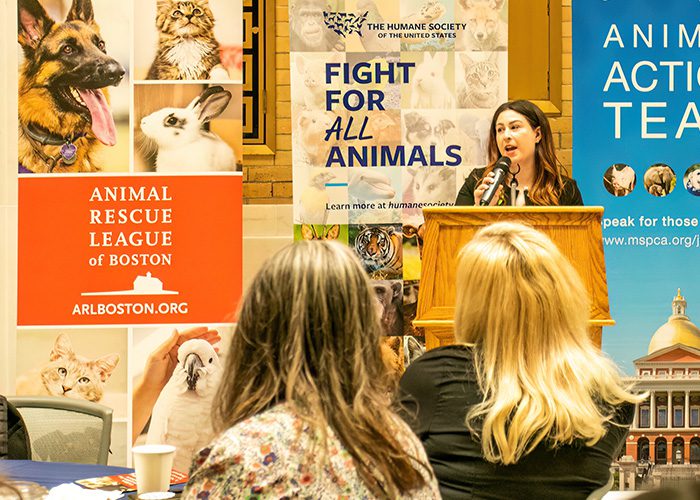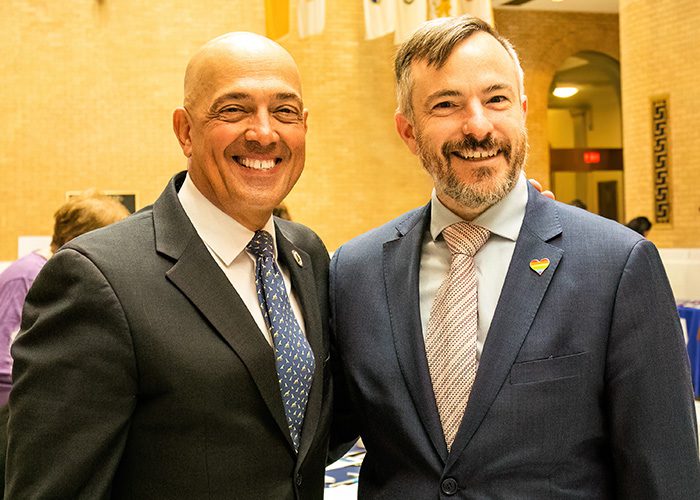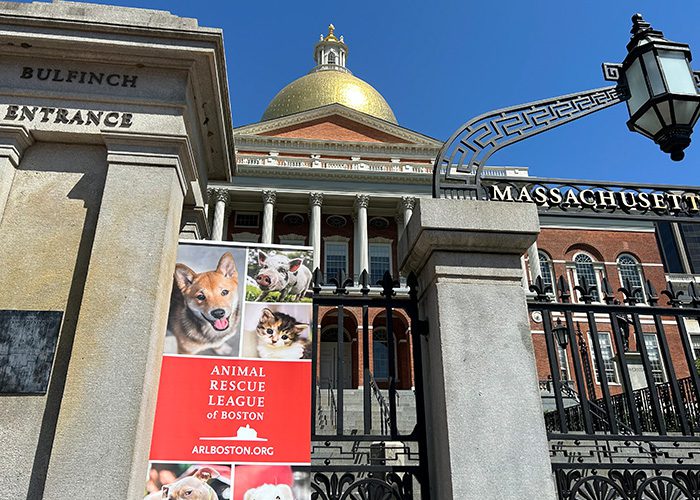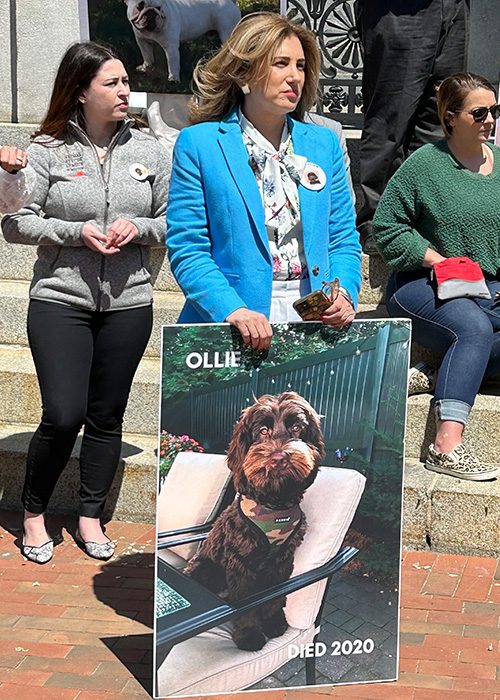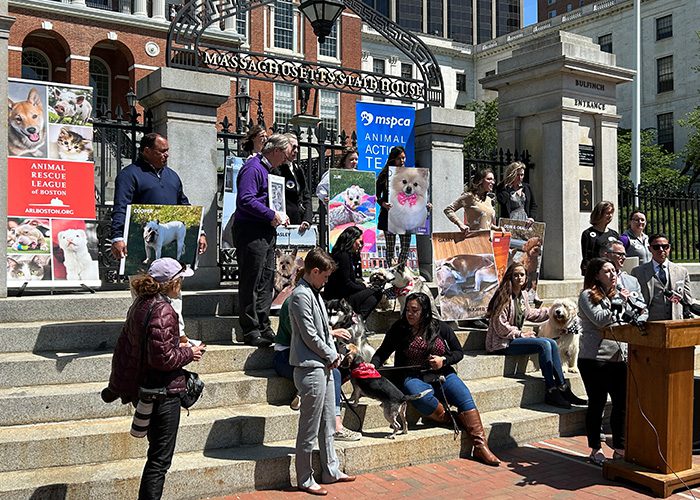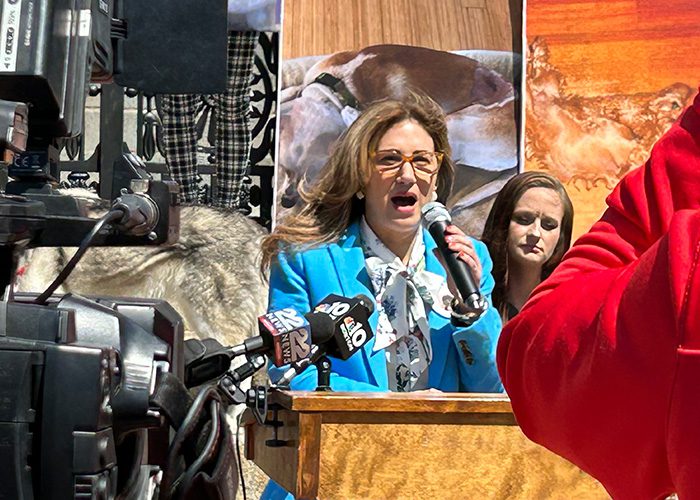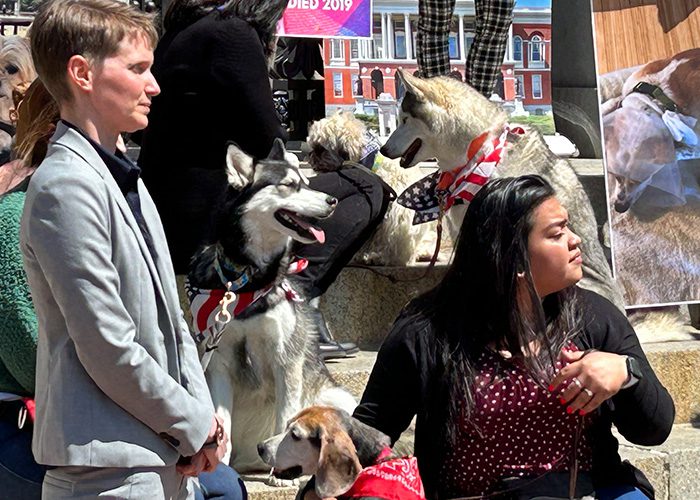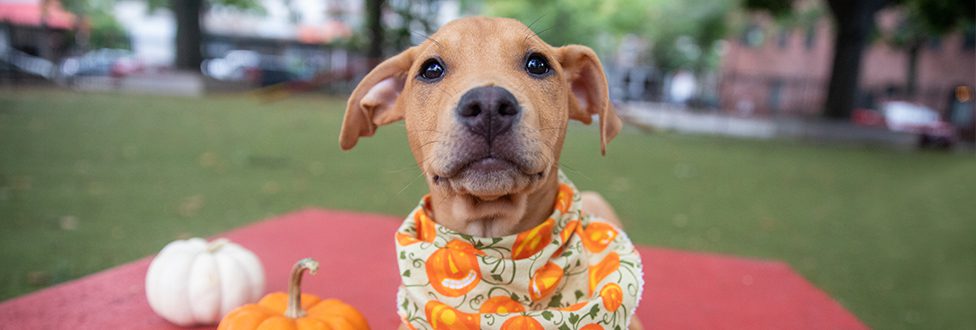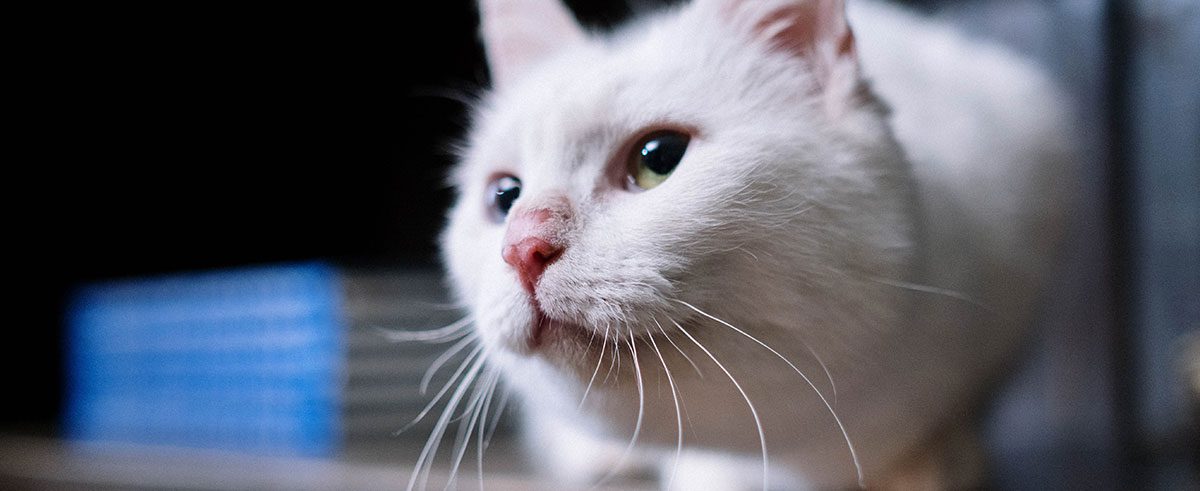Winter is Here!
ARL receiving reports of animals being kept out in the winter cold
Although winter thus far has been relatively mild, we have seen plenty of days and nights with temperatures below the freezing mark, and our first winter storm is also on the horizon.
The Animal Rescue League of Boston (ARL) has already received a number of calls from concerned citizens regarding animals being left out in the cold, and wants to remind the public when the mercury dips there are laws in place to protect animals, including the prohibition of excessive tethering.
According to Massachusetts General Law Ch. 140, Section 174E, Subsection D:
A person shall not leave a dog outside when a weather advisory, warning or watch is issued by a local, state or federal authority or when outside environmental conditions including, but not limited to, extreme heat, cold, wind, rain, snow or hail pose an adverse risk to the health or safety of the dog based on the dog’s breed, age or physical condition, unless the tethering is not for more than 15 minutes.
Under this law, any law enforcement officer, including special law enforcement officers with ARL, has the authority to issue citations or warnings for owners who do not comply: $50 first offense, $100 second offense, $300 and possible loss of ownership with a third or subsequent offenses.
Winter is here, and it’s up to us to protect our pets, and also include them in any winter storm preparations.
Here are some other tips to keep in mind to keep animals safe:
- Prepare your dog for the elements. If you have a longer coat dog, let it grow out for the winter; for shorter coat dogs, sweaters, coats and booties can go a long way to protect your pooch.
- Wipe off your dog’s paws and stomach. Chemicals used to treat sidewalks can irritate your dog’s paws, and can be poisonous if ingested. When coming in from the cold, clean and dry your dog’s stomach to keep them healthy!
- Keep outdoor trips quick. Bathroom breaks or walks, keep it short and sweet and keep your pets indoors as much as possible.
- Never leave your dog alone in a cold car. Temperatures inside a car can plummet when the engine is turned off. Just like it’s illegal in Massachusetts to leave an animal in a hot car, it’s also illegal to leave an animal in a car during extreme cold. When going out, leave your animals at home.
- Pay attention to your pet’s grooming and health. An animal with a matted coat cannot keep him or herself warm! Senior pets also suffer from increased arthritis pain in the cold, so check with your veterinarian on how to keep your pet comfortable.
- Check under the hood. Cats love to warm up underneath the hood of a car, as the residual heat from the engine burns off. Always pound on the hood of your vehicle and do a quick visual check before starting the engine.
Bottom line, if it’s too cold for you to be outside, it’s also too cold for your pet to be outside.



